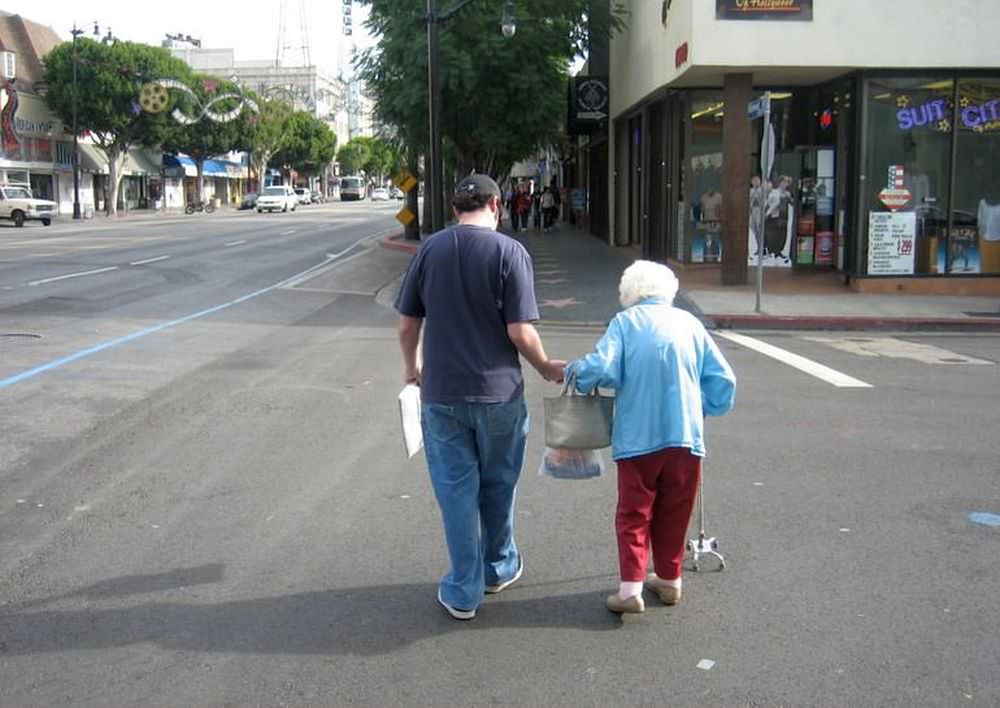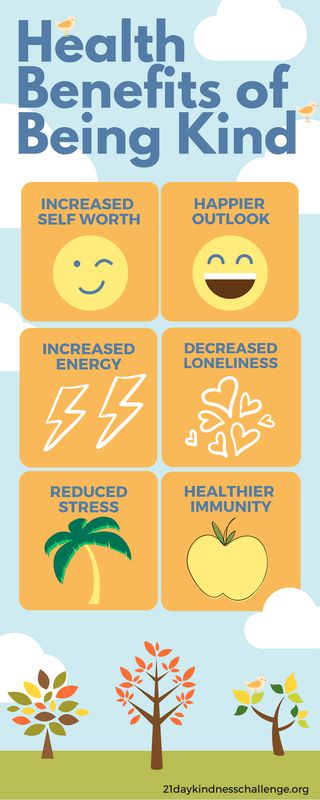We all have heard the old age saying “treat others the way you want to be treated.” It’s a science-backed fact that as children we are biologically wired to be kind. Now, there are several studies that prove that kindness not only improves our happiness quotient but also leads to improved health.
Kindness refers to helping others without expecting anything in return. For example, helping an old man or woman cross the street. It could also mean random acts of goodness like smiling at an unknown baby or child.

Showing love and care is also an act of kindness, for example sitting beside someone who is bedridden and entertaining them with jokes or stories. Doing charity and volunteering for social service are also acts of kindness.
It seems that being kind makes us happy and being happy makes us kinder too. In the words of the Dalai Lama;
“If you want others to be happy, practice compassion. If you want to be happy, practice compassion.”
A study from Tohoku Gakuin University found that happy people strengthen, sustain, and replicate this state by being kind.
Research on kindness published by the American Psychological Association, the lead author Dr. Bryant P.H. Hui – a research assistant professor at the University of Hong Kong says, “Prosocial behavior-altruism, co-operation, trust, and compassion – are all necessary ingredients of a harmonious and well-functioning society. It is a part of the shared culture of humankind, and our analysis shows that it also contributes to mental and physical health.”
The new study states that kindness and helping others can lead to improved health and well-being. But, not all kindness is equally beneficial to the giver. The factors that influence the benefit to the giver are the type of kindness, the giver’s age, gender, other demographic factors as well as the definition of well-being.
Hui and his colleagues analyzed 201 independent studies, comprising 198, 213 participants. These studies involved studying the connection between pro-social behavior and well-being. They concluded from the analysis that there was a measurable link between the two.
Also, they found that informal acts of kindness like carrying the groceries for an elder neighbor was more strongly associated with the overall well-being than formal acts of kindness like volunteering for an NGO. In addition, younger givers reported higher levels of overall well-being, while older givers reported better physical health.
Also, women reported better levels of improvement in well-being than men after performing acts of kindness. This may be because stereotypically, women are expected to be more caring and giving, and they experience a stronger feel-good experience as they are also conforming to social norms while being kind.
Physiological benefits of kindness
Increased satisfaction and well-being: Doing nice things for others can boost the serotonin levels in the brain. Serotonin is the neurotransmitter associated with well-being. Most of the anti-depressants have serotonin in them and they immediately help in improving mood.
Reduced anxiety and stress: A study on happiness by the University of British Columbia found that acts of kindness done by participants significantly increased their PA (Positive Affect). PA refers to an individual’s experience of positive moods such as joy, interest, and alertness and an increased PA leads to reduced levels of stress and anxiety.
Good for the heart: Kindness releases the hormone oxytocin. According to Dr. David Hamilton, “oxytocin causes the release of a chemical called nitric oxide in blood vessels, which dilates (expands) the blood vessels. This reduces blood pressure and therefore oxytocin is known as a ‘cardioprotective’ hormone because it protects the heart (by lowering blood pressure).”
Prevents illness: The release of Oxytocin after performing an act of kindness reduces inflammation. Inflammation in the body is associated with health problems like diabetes, cancer, chronic pain, obesity, etc (source).
Various studies in the past 15 years have shown that regular volunteers have better health and (among the elderly and those with HIV/AIDS) a lower mortality rate.
| Worth A Read: Can Pets Make You Happy?
What type of kindness will make you happiest?
If we decide to practice kindness, will every type of act of kindness lead to equal happiness? Would helping out a family member increase our well-being more than helping out strangers? A new study published in The Journal of Social Psychology investigated this question of how different acts of kindness affect our happiness.
Research was conducted on 683 adults from several countries – the US, Brazil, UK, South Africa, who were asked to complete at least one act of kindness daily for a week, and they were encouraged to carry out different types of kind acts.
One group was asked to direct their kindness toward people who they knew closely like family and friends.
Related: Alpilean Ice Hack for Weight Loss
Second group was asked to help out strangers.
Third group was asked to perform acts of self-kindness like meditation, going for a walk, etc.
The control group went about their lives as usual.
According to a survey question administered before and after the experiment, participants who performed any of these kindness activities became happier compared to the control group and all different types of kindness led to happiness.
Kindness, irrespective of the form, made people feel good. Why was that?
According to Lee Rowland – lead author of the paper, director of research at Kindness.org, and research associate at the University of Oxford, “being kind to others, whether or not we are close to them, maybe inherently rewarding for us and activate an evolved neuro-biological system involved in caring for others. Observing kindness is a way of noticing the good around us, rather than seeing a world full of stress and bad news, which could boost our mood.”

A note on self-kindness
Self-kindness or self-compassion is also an equally important form of kindness. We can be kind to others in a better way if we are kind to ourselves. Self-kindness acts may include meditation, going for walks, listening to your favorite music, etc.
Low self-compassion is connected to depression and low psychological well-being. When faced with a failure, self-critical people feel negative and worse than others. But, when self-compassionate people fail, their brain areas which are related to positive emotions and compassion come into play and they tend to be more positive and accepting. Self-kindness plays a vital role in coping.






